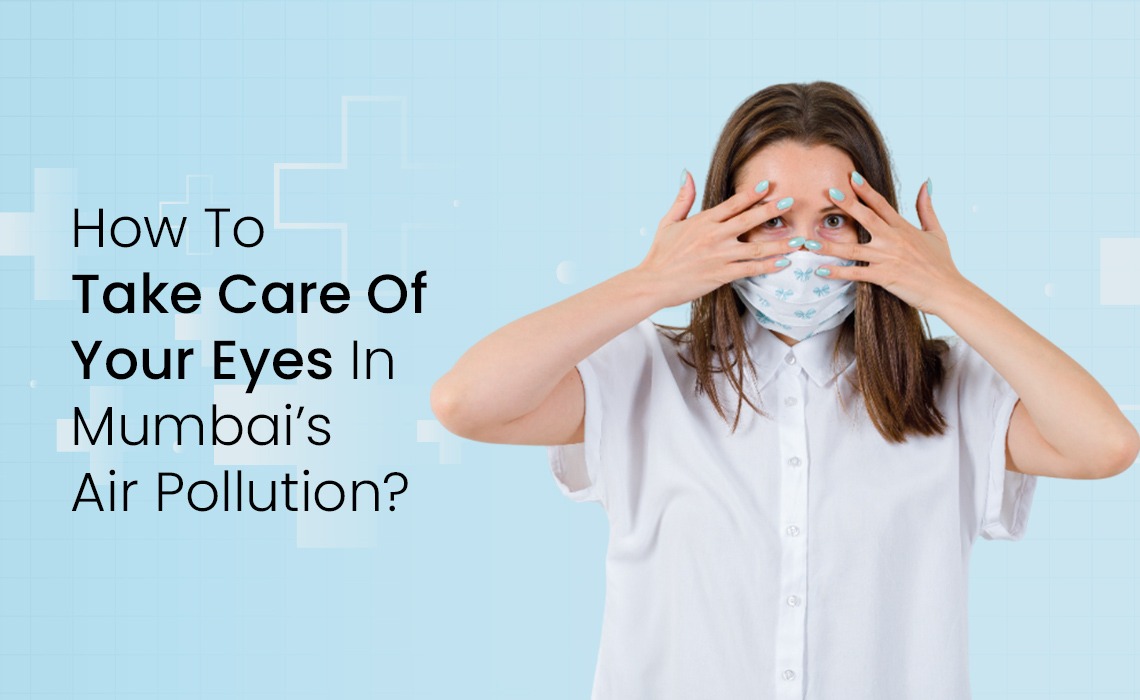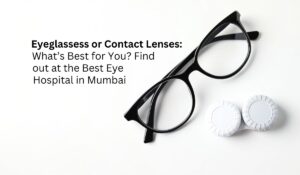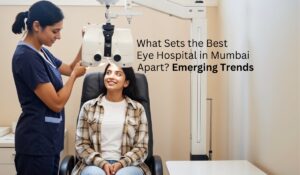Mumbai is a city that never sleeps, with its streets going alive at a moment’s notice, cultural signs, and the never-ending hustle, but in the fast-paced life of the city, the air pollution doesn’t also seem to go away. Be it emissions caused by vehicles on the road or construction sites coupled with industrial activities, the rate of air pollution in Mumbai has reached threatening levels, a threat not just to your overall health but also to your eyesight.
At Tandon Eye Hospital, we would like to enlighten and make you aware of the relationship between air pollution and eye health and share with you practical tips on how to protect your vision.
The Impact of Smog on Your Eyes
We have all witnessed a diffused haze of smog enveloping the city in the thick pollution blanket formed when traffic fumes, industrial emissions, and other pollutants mix with sunlight. While smog is predominantly irritating the lungs, the eyes can feel uncomfortable as well. When the air quality is poor, such pollutants as carbon monoxide and nitrogen dioxide can affect the eyes, ranging from mild irritation to serious conditions.
Common Eye Problems Caused by Pollution
Air pollution can cause several eye problems. The most common include:
- Watery Eyes: You will notice that your eyes are watering more than usual. This is the body’s response to irritation caused by pollutants in the air.
- Burning Sensation: That annoying, uncomfortable feeling of burning eyes is often a result of prolonged exposure to smog.
- Red Eyes: It may make your eyes look bloodshot, hence making them redder than normal.
- Itchy Eyes: This may cause your eyes to itch or even swell due to an allergic reaction caused by pollution.
- Dry Eyes: In cases of deteriorating air quality, your eyes may feel dry, gritty, or as if something is stuck in them.
- Eye Allergies: This is very common in areas with a lot of pollution. The eyes will be itchy, red, and swollen and can cause blurry vision.
What You Can Do to Protect Your Eyes
While we can’t control the air we breathe, there are plenty of ways to protect your eyes from the harmful effects of pollution. Here’s what you can do:
- Reduce Exposure: The best way to protect your eyes is to reduce exposure to pollutants. On the days when the air quality is poor, especially in the mornings or evenings when pollution is at its peak, try to stay indoors as much as possible.
- Wear protective eyewear: If you need to go out, consider wearing protective eyewear. Sunglasses or special glasses designed to block dust and pollutants can act as a shield for your eyes.
- Avoid touching your eyes. It might sound simple, but avoiding rubbing your eyes is key. Pollutants on your hands can worsen irritation. Wash your hands regularly and try not to touch your face, especially your eyes.
- Hydration: Drinking a lot of water helps your body keep moisture in it, which is necessary for your eyes to produce enough tears. Try to drink 8-10 glasses a day to keep your eyes hydrated and reduce irritation.
- Eye-Healthy Foods: A diet rich in omega-3 fatty acids can help your eyes fight inflammation. Some of the best foods for eye health include spinach, carrots, almonds, walnuts, and berries.
- Wear Sunglasses: Protecting your eyes from UV rays is important, but sunglasses can also help block out some of the dust and pollutants in the air. Choose glasses with a wraparound design for better coverage.
- Use Lubricating Eye Drops: If your eyes feel dry or irritated, lubricating eye drops can provide quick relief. Just be sure to consult with your ophthalmologist before using them to ensure they’re safe for you.
- Take Screen Breaks. Working from home or spending more than five hours on end in front of screens can cause digital eye strain. Be sure to follow the 20-20-20 rule, which recommends taking a 20-second break every twenty minutes to look at something 20 feet away.
- Regular Eye Checkups: If your eyes are feeling irritated for more than a day, then you should consult an eye specialist. Regular eye checkups can help you diagnose any problems at an early stage, and a professional will give you personal advice for your eye health.
Special Tips for Sensitive Eyes
- Contact lenses: If you wear contact lenses, you may find that polluted air makes wearing them uncomfortable, making your eyes feel worse. In case of heavy air pollution, try to avoid contact lenses. Lenses trap pollutants and can be a source of irritation. If the discomfort persists when wearing contacts, remove them and use lubricating drops. Clean your lenses regularly and seek advice from your eye care professional if the discomfort persists.
- Avoid Eye Makeup: Sometimes, makeup can aggravate eye allergies. If you are experiencing irritation, it would be best to avoid eye makeup altogether. If you do wear eye makeup, make sure to select hypoallergenic products and properly remove them at night.
Conclusion: Keep Your Eyes Safe
Being a resident of Mumbai does not inevitably expose us to the negative impacts of pollution. There are habits one can opt for like using protective eyewear, hydrating oneself regularly, and maintaining an appropriate diet for the healthy maintenance of your eyes.
At Tandon Eye Hospital, we are always here to help you protect your eyes. When you feel that something is persistently irritating or discomforting your eyes, we encourage you to visit us. A complete eye check can help identify the problems and provide guidance about the best treatment for you.
Your eyes deserve the best care, and we’re here to make sure they get it! Stay safe, protect your eyes, and enjoy life in Mumbai with clear, healthy vision.




